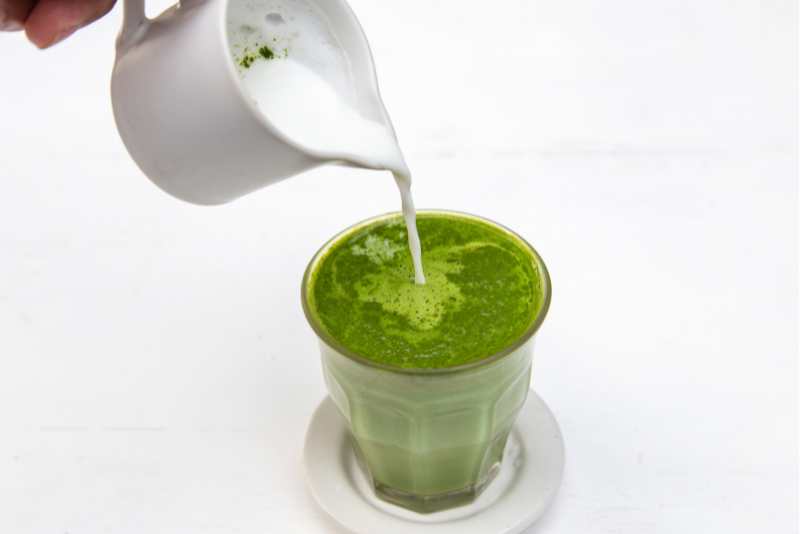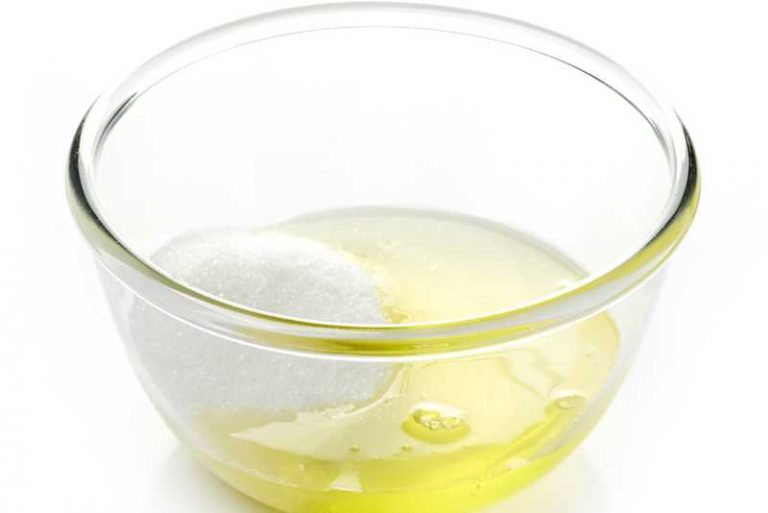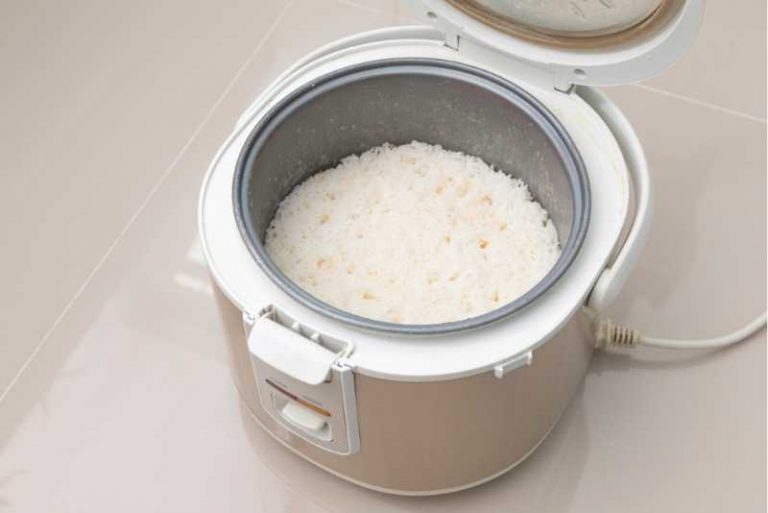Does Adding Almond Milk To Matcha Reduce It’s Benefits?
If you’re a fan of matcha, one thing you may be wondering is if adding almond milk to the tea has any effect on its benefits. After all, there are so many health claims associated with matcha green tea powder thanks to its high concentration of antioxidants and vitamins that contribute to your overall wellbeing.
However, because of the popularity of matcha, this has led to countless recipes and concoctions, including matcha lattes, smoothies, and even desserts. One common ingredient added to these creations is of course, almond milk, a plant-based milk alternative.
But, does adding almond milk to matcha reduce its benefits?
The short answer is No! Although incorporating almond milk into matcha does reduce some of its benefits. The combination of matcha and almond milk can actually offer a unique set of benefits.
If you want to know more about these unique benefits, then keep reading, as we will explore the potential effects of combining matcha with almond milk.
Nutritional Profile Of Almond Milk
Before we get into the benefits of mixing almond milk with matcha, let’s first go over it’s nutritional profile so you can see exactly what the fuss is all about.
Calories and Macronutrients
If you’re someone who like to monitor their calorie and macronutrient intake you should fine this part very interesting.
- Calories: A cup (240 ml) of unsweetened almond milk contains approximately 30-50 calories, making it a low-calorie option compared to cow’s milk.
- Protein: Almond milk is relatively low in protein, with about 1-2 grams per cup. This is significantly lower than cow’s milk, which contains around 8 grams of protein per cup.
- Fat: Unsweetened almond milk contains 2-3 grams of fat per cup, mostly from healthy monounsaturated and polyunsaturated fats. It is low in saturated fat and does not contain cholesterol.
- Carbohydrates: Unsweetened almond milk contains about 1-3 grams of carbohydrates per cup, most of which come from dietary fiber. It is also low in sugars, making it suitable for those watching their sugar intake.
Vitamins and Minerals
Almond milk is fortified with essential vitamins and minerals, which vary depending on the brand. Some common nutrients found in almond milk include:
- Calcium: Many brands of almond milk are fortified with calcium, providing around 300-450 mg per cup, which is similar to or even higher than the amount found in cow’s milk. Calcium is crucial for maintaining strong bones and teeth.
- Vitamin D: Almond milk is often fortified with vitamin D, an essential nutrient that helps with calcium absorption and supports bone health, immune function, and mood regulation.
- Vitamin E: Almonds are naturally rich in vitamin E, an antioxidant that supports immune function and protects cells from damage. A cup of almond milk provides around 50% of the recommended daily intake of vitamin E.
- Vitamin B12: Some almond milk brands are fortified with vitamin B12, which is essential for red blood cell formation, nerve function, and DNA synthesis. This is particularly beneficial for vegans since B12 is primarily found in animal products.
So as you can see, almond milk does offer a wide range of nutritional benefits, however, while almond it’s important to choose unsweetened varieties to avoid adding things like sugars and artificial ingredients.

Combining Matcha And Almond Milk: What Happens?
When you add almond milk to matcha, you are essentially diluting the concentration of matcha in your beverage. However, this does not necessarily mean that the health benefits of matcha are reduced. In fact, the combination of matcha and almond milk can offer a unique set of benefits.
Enhanced Flavor and Creaminess
Adding almond milk to matcha gives the beverage a creamier texture and a slightly nutty flavor that complements the natural taste of matcha. This makes it a delicious and enjoyable way to consume matcha, especially for those who may find the taste of pure matcha too strong.
Increased Nutrient Intake
By combining matcha with almond milk, you are not only getting the health benefits of matcha but also the nutrients found in almond milk. As mentioned earlier, almond milk is a good source of calcium, vitamin D, and vitamin E, which can contribute to overall health and well-being.
Improved Absorption of Antioxidants
Some studies suggest that the fat content in almond milk may help with the absorption of certain antioxidants found in matcha. The antioxidants in matcha, specifically catechins, are fat-soluble, meaning they are better absorbed when consumed with a source of dietary fat.
Since almond milk contains a small amount of healthy fats, it may aid in the absorption of these beneficial compounds.
Is Matcha Better With Or Without Almond Milk?
The preference for matcha with or without almond milk largely depends on individual taste and dietary needs. If your primary goal is to obtain the maximum benefits from matcha, consuming it on its own might be the ideal choice.
This allows you to fully experience matcha’s unique flavor and potent concentration of antioxidants.
However, as you just reed, adding almond milk to matcha will not significantly diminish its health benefits. Instead it can offer a creamier texture, a slightly nutty taste, and additional nutrients from the almond milk itself.
Are There Any Other Types Of Milk That Goes Well With Matcha?
So it’s no secret that almond milk is a popular choice for pairing with matcha. But did you know that there’s another milk that can complement the unique flavor of matcha just as well?
That’s right, coconut milk is a great alternative for anyone looking to switch things up. With its creamy texture and subtle sweetness, coconut milk adds a touch of tropical flavor that perfectly complements the earthy, slightly bitter taste of matcha.
Conclusion
So there you have it. Does Adding Almond Milk To Matcha Reduce It’s Benefits? No not really, and again using it in your drink really comes down to personal preference. The bottom line is if you prefer drinking you matcha as is without milk than keep doing so.
But if you want to switch things up a bit and change the flyover slightly than give almond milk a go and see what you think.






